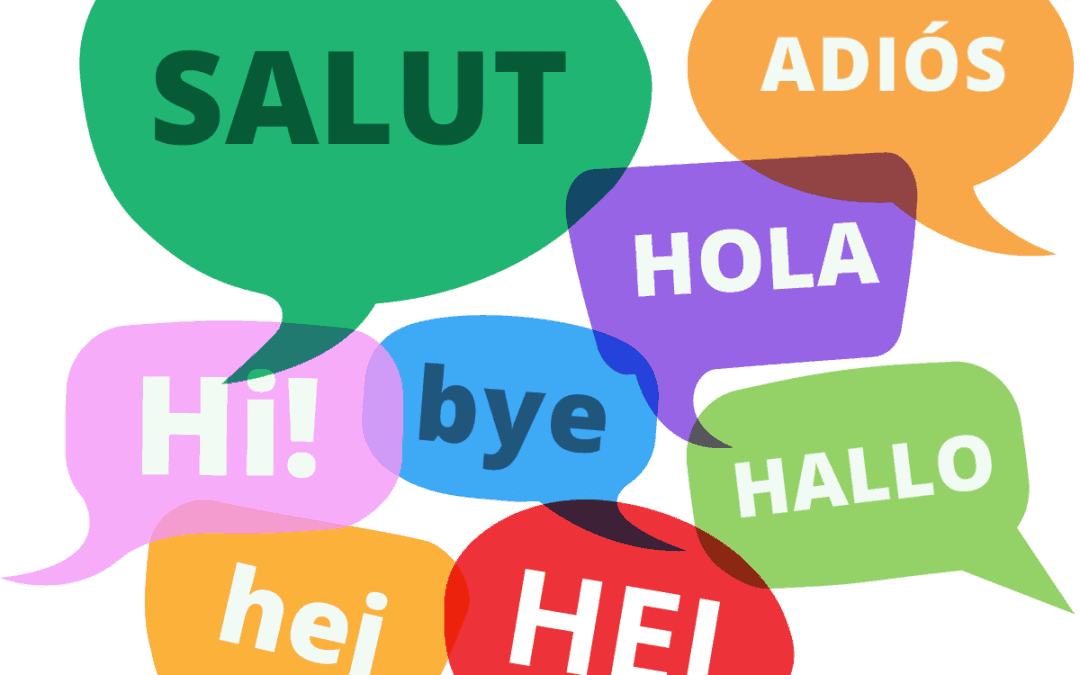8 By-products of Foreign Language Learning
Medical Pharmaceutical Translations • May 30, 2018 12:00:00 AM

Learning a foreign language not only helps us communicate with another tongue, it also helps us gain new perspectives and a few new things we never would have noticed before learning another language. Some of these by-products are quite quirky. Here they are:
Almost all movies are ruined When you first hear foreign accents that are used intermittently or—worse yet—completely wrong when used, it is cringe-worthy. The movie can become painful, unwatchable. Depending on how proficient you are, you will notice actors using the wrong dialects as well. If they are Austrian, why does their accent make them sound as though they are from Berlin, Germany?
What about when you watch a foreign film and you keep the subtitles on, but the translations are incorrect? Some don’t convey the right meaning or emotion. Others leave out entire sentences all together while many are just completely wrong. The essence of many a movie scene has been lost through poorly translated subtitles.
Your first language changes Maybe you can only think of the word for something in your second language, because you have completely forgotten it in your native language. Or you start changing your sentence structure and start putting subjects before the noun. Your grammar gets jumbled and the new idioms or colloquialisms you utter are hard to comprehend by your native pals. Don’t worry. It just a side effect of language learning.
You dream of where you will travel You mentally pack your bags to go to destinations where you can practice your newest language. Should you practice Portuguese in Portugal and Brazil in one year? Why not? What about trying out your French in Saint Martin and also Paris? But then you also have to go to Quebec so you can pick up the nuances between French and French-Canadian!
You ponder learning other languages If you know Swedish, you wonder about learning Norwegian. If you know Spanish, you figure Portuguese wouldn’t be that hard to learn. And Russian has to be similar to Ukrainian, right?
You become a practicing machine You find yourself practicing everywhere you go. At the beach you wonder what the German words are for sand, towel, sunshine and suntan lotion. In the store, you notice pillows, sheets and comforters and mentally (or even orally) say their names in your other language.
Maybe you set up your phone to only use your foreign language or place sticky notes on all the objects in your house. No matter what, you are always pondering how to say a phrase or word in another language.
You start dreaming in your new language When you are learning a language, all day you live in two worlds. And all night you dream, but then you will start dreaming in your new language. This usually happens when you have been studying for quite some time.
You understand English language learners You know the struggles. You know how hard it can be to conjugate, spell, learn sentence structure and all that grammar. You know how arduous and confusing it can all be, so you understand people who are learning English as their second language. And you sometimes wonder how in the world they will ever be able to master it.
English learners feel relieved when you admit to them that even though you have studied your second language for 7 years, you still don’t get it all. You understand and can emphasize with imperfect fluency. You too are the utterer of incorrect phrases, the designer of odd, bumpy sentence structures, the bleary-eyed language studier who knows what language learning headaches feel like and how wonderful it is when you get it right!
You wonder about all communication The wonder usually happens late at night or after a grueling language class with a tutor or a long day trying to speak your new language and running into many a blank stare or vocabulary-related memory loss. That is when questions come rushing out of you. How did language start? Why has it evolved as it has? What do all these sounds mean? What all these abstract concepts? Why am I doing this? How on earth can we understand each other at all? What is the meaning of all of this? What about life? Does this mean anything? Are we not all just animals on a large sphere in space? The list goes on and on.
It is an odd side effect of language learning, but a few deep breaths or a break from irregular verbs and conjunctions will help. Then you can come back and continue strong.
And that is the key, isn’t it? Continuing strong? There is no destination when it comes to learning a new language. Fluency is a goal, to be sure, but that means different things to different people. However, we all can continue strong and find the peculiar traits we reap in doing so are all part of the fun and the growth.
Happy learning!
By Ilona Knudson
